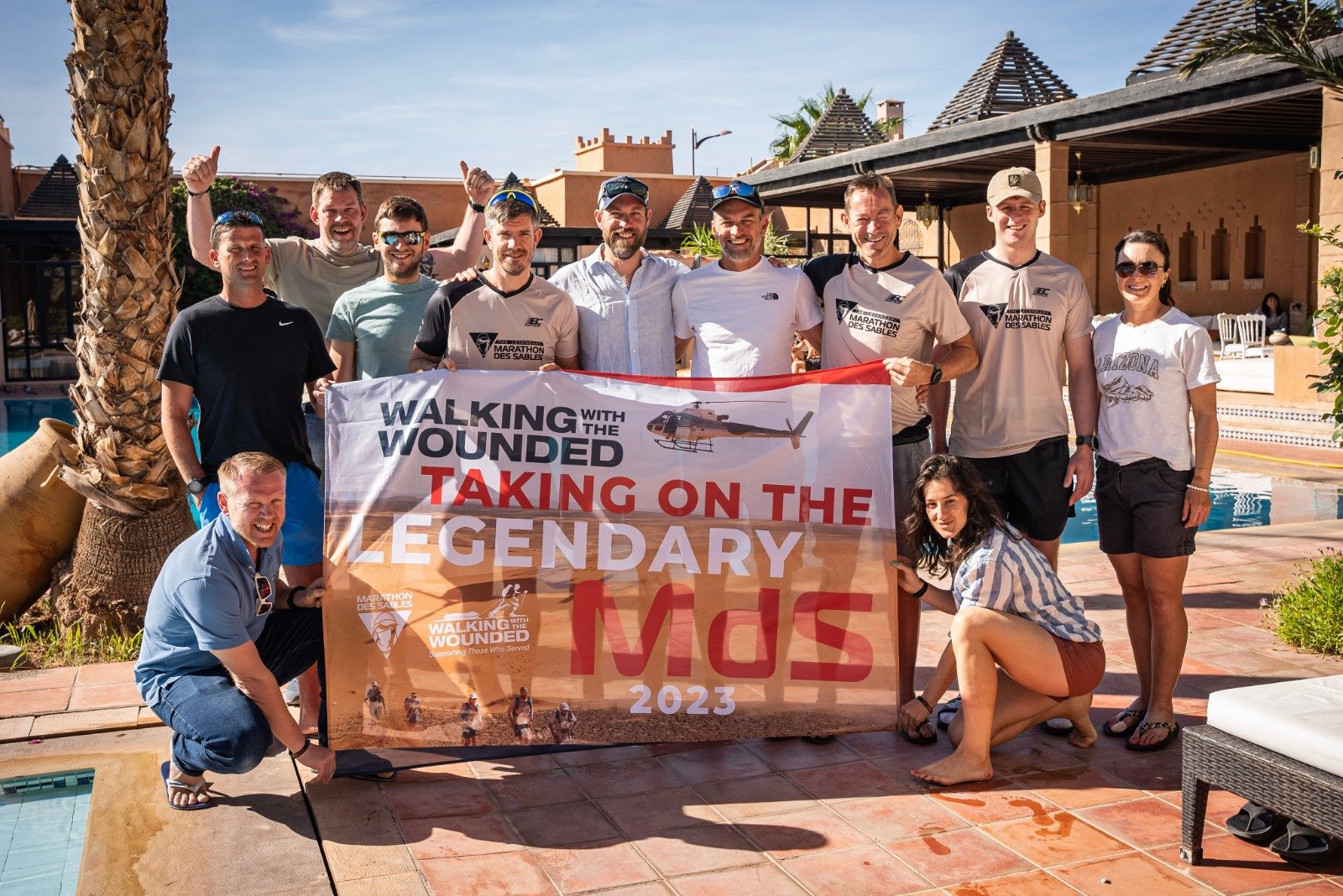
Support our charities
The team mates in Tent 77 supported four different charities and have so far raised tens of thousands of pounds for those in need. It’s not obligatory to raise funds for charity when entering the MDS, but it seems a wasted opportunity not to. The MDS have a page with some inspiration and also their own charity, Solidarité Marathon Des Sables if you are struggling with who to choose.
Walking With The Wounded ‘WWTW’ is a leading military charity which recognises that those who served, deserve. Whether mentally wounded, socially wounded or physically wounded, they deserve the care, support and means they and their families need to function in society, serving in the communities in which they live, reigniting their sense of purpose and making a positive contribution again.
Macmillan Cancer Support is here to do whatever it takes to support people living with cancer. They provide services for people living with cancer at every stage of their cancer experience. They are here to provide emotional, practical, physical, and financial support.
Help for Heroes support veterans and their families in their homes and communities across the UK. This may be counselling, funding equipment, helping people manage their health conditions and navigating support systems, welfare support, joining physical activities, wellbeing support, joining social activities, self guided help or signposting.
UNICEF, the United Nations Children’s Fund, works to build a better world for every child, every day, everywhere. UNICEF provides more children with clean water, life-saving therapeutic food and vaccines, education and protection from violence than any other humanitarian organisation.
Read Duncan’s story
Duncan Slater joined us on the 37th MDS as part of the Walking With The Wounded team. It was his third attempt. He’d fallen just short on attempt number one, but succeeded second time round. Now he was back for his third time.
Duncan was serving in Afghanistan in 2009 when his vehicle was blown up by an improvised explosive device. He ended up having a double amputation of his legs.
“When I was amputated, my first thought was that my life was going to be restricted. So I’ve put all my energy into proving the opposite. I want to show that people who’ve been amputated can do the same things as everyone else.”
Sadly Duncan didn’t manage to complete the course this time round, but remained an inspirational figure to the rest of the team. How could he not, here we were, nervous about what we were about to undertake and here was a guy doing it with no legs.
Read more of Duncan’s story here…





